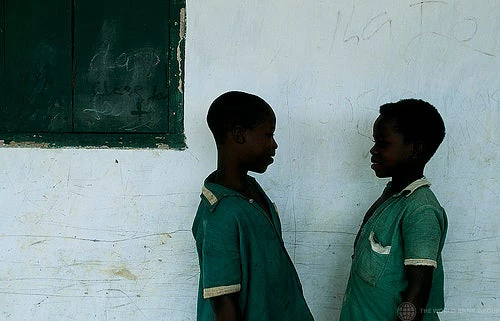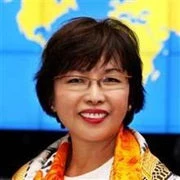The hall was full all the way to the back and up to the balcony. The audience was lively, contributing loud asides in their seats, applauding often, cracking inside jokes, and even occasionally arguing directly with those on stage. You’d think I was at a political rally, but it was the 20th Nigerian Economic Summit in Abuja last month; the theme of the three-day summit was ”transforming education through partnerships for global competitiveness.”
Being an economic conference, it was attended by business leaders (industrialists and bankers) and others in the private sector, as well as high-level government officials led by Vice-President Namadi Sambo who was present through much of the Summit. Because the topic was education, officials from the Ministry of Education, university presidents and professors, teachers and students also attended.
I was part of the opening plenary session and then settled down to listen to the discussions over the three days -- conversations that were bluntly and refreshingly honest, baring the problems, considering programs that have worked, and challenging the politicians in the hall to commit to solutions.
When I got the chance, I asked the Director-General of the Nigerian Economic Summit Group Frank Nweke why education was the topic this year. His response and those from others I asked were very similar: “Education needs intelligent champions.” Education will determine Nigeria’s place in the world, so it is everyone’s business and not only of educators or the Ministry of Education. The Summit program stated that the “Nigerian education sector is in dire straits and requires the intervention of both public and private stakeholders if it is to compete in the global economy.”
One of the most applauded speakers was a guest from Singapore who said that, unlike Nigeria which has great natural wealth, Singapore is an island without natural resources -- not even fresh water, which it has to buy from Malaysia --so its leaders and peoples were determined to invest well in the skills of its young population. Singapore schools, he said, do not teach what is not useful (applause); they teach competence, character, chemistry (“ability to work with others”) and confidence (even louder applause).
In the first session, a Nigerian speaker took a quick poll of the audience: Who had attended public schools? About 90% raised their hands. Who is sending their children now to public schools? One by one, the hands came down. The loss of confidence in the quality of public schools was indeed the starting point for the rest of the discussion; the conversation focused on what it will take to transform education in Nigeria.
The World Bank’s former Vice President for Africa, Oby Ezekwesili, now a senior adviser in the Open Society Foundation in Nigeria, got a standing ovation for calling for a stop to the “cult of transactional activities” in the education sector, which leads simply to “a well-funded dysfunctionality.”
World Bank Country Director Marie Francoise Marie-Nelly, who attended most of the Summit, cited data from the service delivery survey in three states in Nigeria, which resonated with the audience: Public school teachers are absent from the classroom about one-fourth of the time and teach only an average of 3.25 hours per day.
At the Summit’s closing session, participants called for courage, judicious application of an appropriate level of resources, recruitment based on merit, more disclosure to promote accountability, more academic freedom at the tertiary level, and greater consistency between policy and implementation. The hall, which was still packed, erupted in applause at these messages.
This week, at the World Bank-IMF Spring Meetings in Washington, ministers of finance and development from many countries will discuss development challenges, big and small. In one panel session, the topic is education systems in the developing world, its challenges and promising solutions. I doubt that the audience will be as lively and raucous as those at the Nigeria summit, but I hope that the same passion for improving education will be evident. Many countries’ education systems share the same problems. It will take the commitment of whole nations to make difficult changes.
Follow the World Bank education team on Twitter: @WBG_Education
Related
- Nigerian Economic Summit
- Learning for All Symposium: Investing in a Brighter Future
- World Bank and Education
- World Bank and Nigeria



Join the Conversation